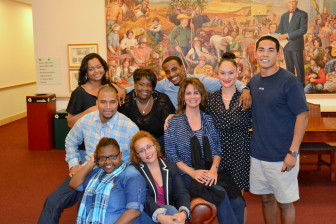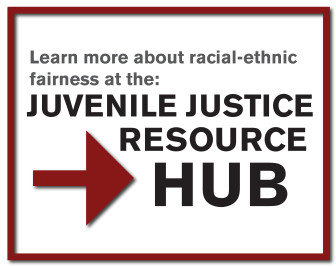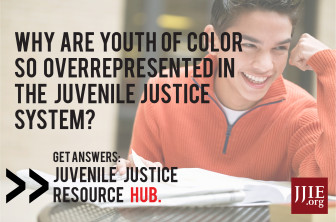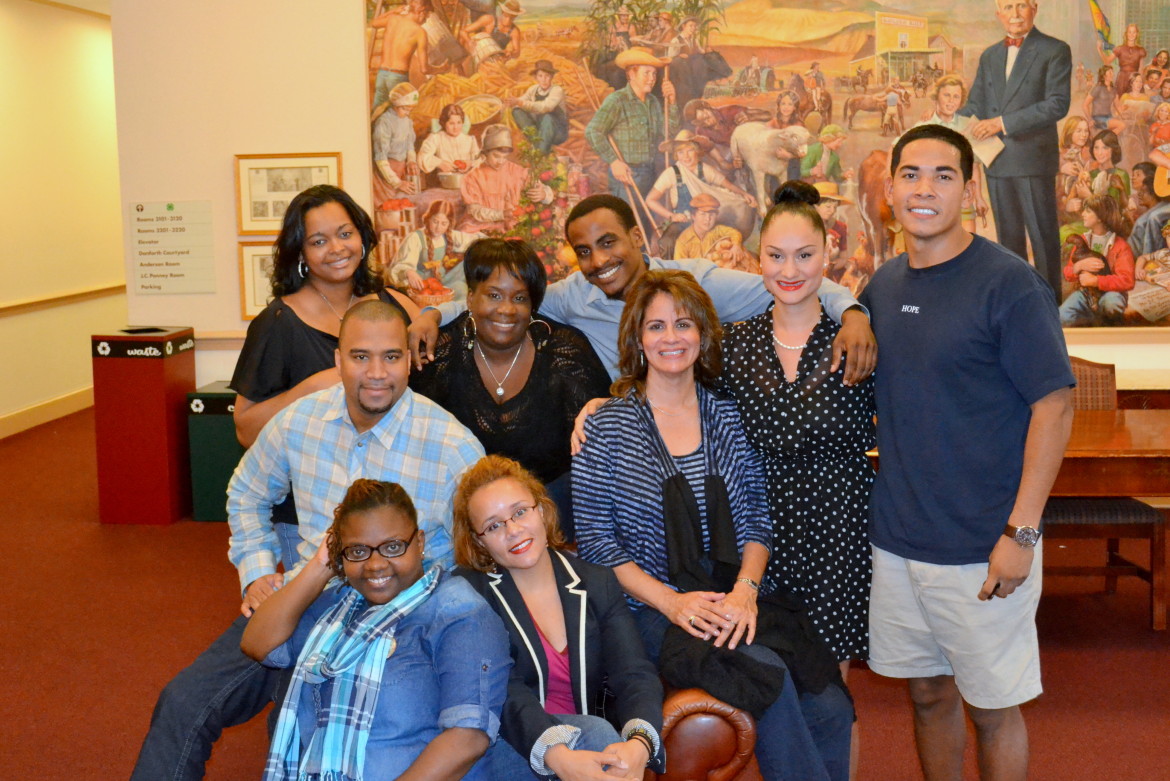
Erika C. Stallworth
The 2012-2013 cohort of the Youth Justice Leadership Institute
Youth of color are overrepresented at almost every level of contact with the juvenile justice system, an issue often referred to as disproportionate minority contact. But despite the numbers, there are still very few youth advocates who represent the communities that are most-affected by the system, says the National Juvenile Justice Network.
The disparity in numbers is the reason why the Washington, D.C.-based organization launched a fellowship program called the Youth Justice Leadership Institute, intended to recruit more juvenile justice leaders of color.
 Diana Onley-Campell, the director of the Institute, says the perspectives and insights of minority leaders are important in changing juvenile justice policies and systems that disproportionately affect youth of color.
Diana Onley-Campell, the director of the Institute, says the perspectives and insights of minority leaders are important in changing juvenile justice policies and systems that disproportionately affect youth of color.
“When you’re fighting for the wellbeing of the children that are part of your community, you’re not going to give up,” Onley-Campbell said. “It lends a certain sense of urgency. It lends a certain determination to the work.”
According to the Office of Juvenile Justice and Delinquency Prevention, nearly a third of youth in custody are black, and close to a quarter are Hispanic. Onley-Campbell says the fellowship hopes to train more leaders who are from these communities.
Each year, starting in 2011, the organization accepts 10 fellows from across the United States as part of a year-long program that includes in-person trainings on advocacy, leadership and juvenile justice reform.
During the program, the fellows embark on individual advocacy projects with support from their peers. The projects have ranged from setting up new diversion programs for youth in their communities to forming statewide advocacy organizations around juvenile justice and child welfare issues.
Helen Gandara was a fellow in 2012 and is currently the assistant chief for the Scottsdale Police Department in Arizona. She said the fellowship helped her understand how police are often the first point of contact for young offenders.
 “My teammates let me understand that my role in law enforcement was significant,” Gandara said.
“My teammates let me understand that my role in law enforcement was significant,” Gandara said.
During her fellowship, she created a data collection project about detained youth in the city of Scottsdale, something she said has never been done before.
“We ran basic data but that has been a great springboard for having discussions around our department,” she said.
Gandara also sits on Arizona’s Juvenile Justice Commission, and has been vocal about disproportionate minority contact.
Jody Owens, a 2012 fellow and the director of the Southern Poverty Law Center’s Mississippi juvenile justice reform efforts, was able to advocate for the passage of a bill in the Mississippi Legislature that would create standards and regulations in detention centers.
Owens, who’s a civil rights attorney, credits the fellowship for helping the bill he worked on to succeed.
“The fellowship provided me with a more in-depth foundation of the different roles that my other fellows services in the process of juvenile justice,” he said.
But Owens added that the experience also encouraged him as an advocate of color, and that it worked on both personal and professional development.
“It was almost like a healing session,” Owens said. “When you are fighting on behalf of kids that can’t fight for themselves, there are certain scars that you carry.”
Onley-Campell, the director of the program, says the goal is to find leaders of color who can go back to their communities to bring change.
“Our intention and goal is to identify professionals of color who can become the recognized leaders of juvenile justice reform and stand them up on sturdy leader legs,” she said.
This year’s fellowship deadline is April 7, 2014.
Financial supporters of The JJIE may be quoted or mentioned in our stories. They may also be the subjects of our stories.

